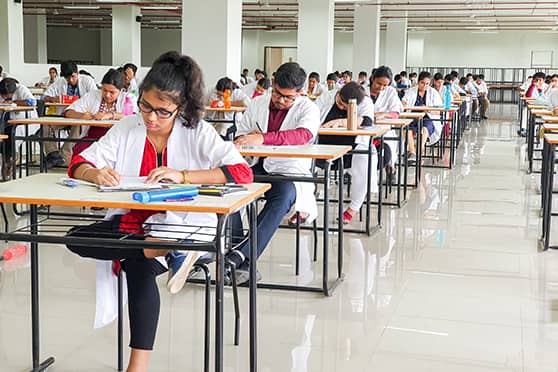How Medical Students, Grads Can Get Competitive Residency Jobs; Finally answered


Each year over lakhs of Indian students apply for the roughly 80,000 MBBS seats across Indian medical colleges. An estimate by the Association of American Medical Colleges (AAMC) is that there are nearly one million applications annually for the approximately 22,000 places in US medical colleges. So, if you are driven by your passion to enter a successful medical career, here are some tips to help you prepare for placements in the US…
Medical Studies in the US
If you want to pursue medical studies in the US, the first step you would have to take is a four-year Bachelor’s degree or the pre-Med programme. The standard undergraduate route is the best to follow—through Common App or Coalition App. Although no specific pre-Med major is required, it is better to major in such subjects as Chemistry, Biology, Biochemistry, or related subjects. Besides, it is important to maintain a high GPA and take courses that fulfil the basics for medical school. During the junior or senior year of undergraduate studies, aspiring medical students have to take the Medical College Admission Test (MCAT), a standard test for assessing such skills as critical thinking and problem-solving, along with scientific concepts.
Upon getting your competitive MCAT score, you can apply to different medical schools in the US. The initial two years focus on classroom-based learning, while the last two involve clinical rotations at hospitals and clinics. Following this, aspiring doctors get into a residency programme in their chosen specialty. This can be for three to seven years depending on the field of specialisation. Residents have to work under the supervision of experienced doctors and gain hands-on experience.
Of course, students who maintain a specific GPA can progress directly into medical school without needing to take the MCAT. These programmes are highly competitive and students are expected to demonstrate exceptional academic results, strong extracurricular activities and a true interest in medicine.
Career Advising Services
Make sure the medical schools you join offer adequate career advising from the first year till you get your residency match. Ask about the specifics on how they will help you—from finding physicians for you to shadow in the first year to reviewing your personal statement and curriculum vitae. Besides general advisers, you should also ask about specialty advisers. These physicians can also help you in recommending where to do elective rotations in hospitals where you may wish to apply for residency.
When to Start Shadowing
Also find out if the medical school you plan to get in allows you to shadow in different specialties while you are in your first year. This will help you immensely because the first year is mostly the easiest. So, you get extra time to try out popular specialties, such as internal medicine and paediatrics, as well as less-sought-after ones, such as cardiothoracic surgery and radiation oncology.
Research Faculty Support
Is the faculty at the medical school you plan to join helpful about writing well-deserved letters of recommendation? You will require strong letters, preferably from members of the faculty in your specialty interest, for your residency applications. You should also find out from fourth-year students if the faculty was helpful in contacting residency programmes of interest on their behalf.
Residency Interview Prep
Try to understand how the medical schools you are applying to prepare their students for residency interviews. The schools should at least offer special coaching opportunities, or allow you to participate in multiple mock interviews with physicians in your specialty interest. Although most official residency interviews were done through videos during the Covid period, we can take it that some will return to in-person interviews. Do not forget to ask if the medical school will allow you enough interview days during clinical rotations.
Networking with Students
You will surely form close ties with your medical school peers, but it can be challenging to form strong bonds with senior students. Find out how well your medical school connects students, especially graduates, to the next senior class. These connections will help you establish your professional network and offer valuable knowledge and support for residency interviews.
Don’t Rush for Specialisation
Do not hurry about deciding on your medical specialisation before you start med school. Actually, you can even wait until you are in your third year for that.
As you browse medical school options, your list of considerations would, possibly turn out to be long. By following the tips mentioned here, you will be better prepared to choose a school when the time comes for you to apply for residency.
About the author: Dr Michael Everest, a visionary leader in Medical Education and Technology, is the Founder-Chairman and Chief Academic Officer of Residents Medical (RM). Dr Everest and his organisation provide invaluable support to graduates worldwide who are interested in residency positions in the United States. His mission is to assist these graduates by offering comprehensive preparation, education and guidance, ensuring that they are ready to face the challenges they may run into during their search for residency opportunities.